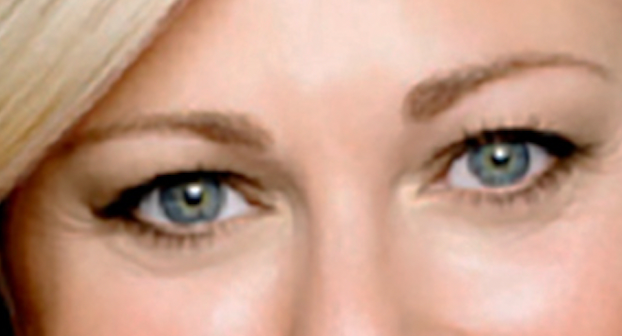Getting your eyes tested regularly matters.I know because it saved my vision. And I can thank my optometrist for that.
For 17 years, I’ve been having my eyes tested regularly with the same optometrist. Her name is Rosa and she looks after me and my husband like an old friend. In fact, I wouldn’t dream of going to anyone else. Over the years Rosa has prescribed me glasses, contact lenses and checks my eyes once or twice a year.
We chat about my eye health and the importance of good health in general because we all know that as we get older our eyes change, and we are more prone to eye disease such as cataracts and glaucoma that could be avoided through prevention or more easily treated with early detection.
So when I had what looked like black ‘cob webs’ in my eyes, I booked an appointment and was able to get speedy advice and support when it really counted. Unbeknown to me, I suffered from a retina tear and after visiting my optometrist was referred to and seen by an ophthalmic specialist that day.

Fortunately, I had my annual eye examination only a few months earlier so we knew that the retina tear was something that had occurred recently, and there were images of my retina to refer back to. It was late in the day when Rosa called the specialist who then waited for me to arrive at his surgery. Rosa also made it crystal clear that I was not to detour and ‘while it was important not to panic, I had to take this very seriously.’
It was something I did not need to be told twice. Rosa also gave me the assurances I needed, that I was in excellent hands and that with treatment I would not lose my eyesight in my left eye. Quickly diagnosing a retina tear and that the ‘cobwebs’ I was seeing were in fact spots of blood; the specialist told me it was imperative I had laser surgery straight away.
The procedure itself took less than five minutes and helped save my vision. For this, I am hugely grateful to my optometrist and trusted medical team who cared for me. Knowing Rosa so well made the ordeal much less scary because I knew I was being looked after. When I called her to explain what happened, she said: “I know, I just got off the phone from the ophthalmic surgeon – it was a good thing you came in to see me so quickly.”
I’m more aware now than ever of the importance of of regular visits to an optometrist and the comfort you derive from building up a relationship with a caring optometrist who puts your health first.
As I discovered, it’s not just ordering your next pair of prescription glasses that your optometrist can help you with, it’s also the task of looking for signs of eye disease or disorder, and for any other health issues which can be seen from an eye examination.
And I’m grateful for this because early action saved my sight.

Here are some tips from GMHBA on how to look after your vision
The obvious – regular vision tests
To ensure optimal eye health and to catch any issues early, it’s important you visit your optometrist regularly and make it an integral part of your health-check routine. How often you need to visit depends on your age and pre-existing conditions. As a rough guide, children should be checked every 2-3 years, teenager and adults under 65 every 2 years and adults over 65 annually. It’s worth noting that if you’re experiencing increased demands on your eyesight, experiencing frequent headaches or any other specific eye problems, you should get tested more frequently.
Request your optometrist takes your photo
As GMHBA Eye Care Optometrist Daniel says, your optometrist should be taking a photo of your retina, with digital retinal photography, so they can “better detect and manage many important eye conditions”. As your retina is made up of multiple structures, a proper examination is crucial to detect if any of these parts have suffered damage which could lead to future vision loss. This is especially important for anyone with high blood pressure and diabetes, who are at higher risk of experiencing issues with their retina health.
Your vision is vital to your sport and recreation activities
How you move your body is largely influenced by your sight, and the information it sends your brain. The type of sport you play will be a key factor to how your optometrist assesses your vision and needs:
- Static vs non-static: Static tasks require a steady image to be processed whereas non-static activities such as football, requires you to constantly change focus.
- Dynamic vs non-dynamic: This refers to the process of being able to focus on a target whilst also being in motion yourself
- Contrast levels: this refers to activities such as skiing and snowboarding where the athlete must have the ability to recognise the subtle changes in terrain in order to properly navigate.
- Colour Vision: Vital for those playing in team sports and must distinguish between team colours
- Distance vs Near: Majority of sports require long-distance vision however some sports such as billiards require razor sharp near vision.
And remember you do not need a doctor’s referral to visit your local optometrist.
For more information on getting your eyes tested regularly, click here.






